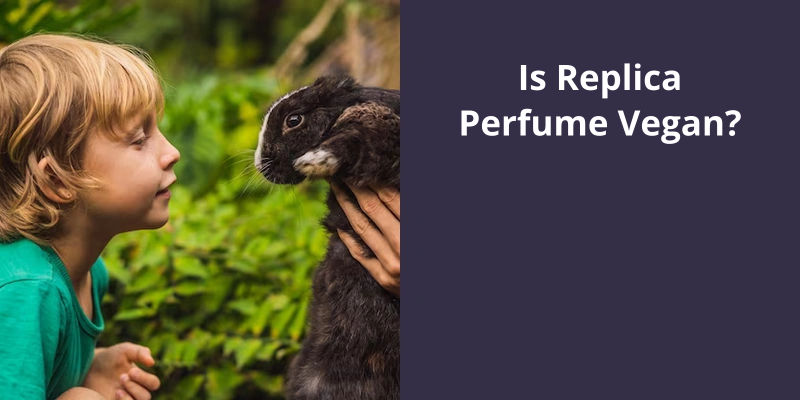Yes, you can mix tea tree oil with isopropyl alcohol. The combination is often used as an effective homemade disinfectant or antiseptic. Tea tree oil has strong antibacterial properties, and when mixed with isopropyl alcohol, it can help kill bacteria and viruses. However, consider the sensitivity of your skin as the mixture can be drying. It’s also important to note that you should never ingest this combination as it is only meant for topical use. Mix the oil and alcohol carefully in a sterilized container, using just a few drops of tea tree oil and the rest isopropyl alcohol. Always do a patch test first to make sure you’re not allergic or sensitive to the mixture.

Can I Add Fragrance Oil to Isopropyl Alcohol?
When we think about isopropyl alcohol, we usually associate it with disinfecting and cleaning purposes. However, did you know that you can also add fragrance oil to isopropyl alcohol?
Too much scent could be overpowering and unpleasant. About 10 to 15 drops or 1/4 teaspoon of essential or fragrance oil is recommended to be added to a 16-ounce bottle of isopropyl alcohol.
You can use lavender essential oil to create a calming, relaxing atmosphere or a citrusy fragrance to energize your home. Another advantage of using fragrance oil is that it can also help mask any unpleasant odors that may come from the isopropyl alcohol.
Therefore, it’s crucial to research the fragrance oil you plan to use and test it out in a small, inconspicuous area before applying it more extensively.
Another consideration is the type of isopropyl alcohol you’re using.
Taking care to research and test thoroughly before applying extensively can help you enjoy the benefits of a custom scent without any adverse side effects.
Now that we know the importance of diluting tea tree oil with carrier oils for safe topical use, the next step is to choose the best carrier oil for you. With various options available in the market, it can be overwhelming to make a decision that works best for your skin type. In this article, we’ll explore the most popular carrier oils to blend with tea tree oil, along with their unique properties and benefits.
What Is the Best Carrier Oil to Dilute Tea Tree Oil?
When it comes to the best carrier oil to dilute tea tree oil, there are a few different options that are generally considered safe and effective. One popular choice is almond oil, which is gentle on the skin and has a smooth texture that makes it easy to apply. Another good option is avocado oil, which is high in antioxidants and has a number of benefits for the skin.
This oil is rich in vitamins and minerals, and can help to nourish and hydrate the skin while also reducing inflammation and irritation. Sunflower oil is also a popular choice, as it’s lightweight and absorbs into the skin quickly, making it a good option for oily or acne-prone skin types.
For every one to two drops of tea tree oil, add 12 drops of carrier oil to create a safe and effective blend. This will ensure that the essential oil isn’t too potent or irritating to the skin, and will also help to spread it more evenly over the surface of the skin.
When using tea tree oil, it’s also important to be aware of the potential risks and side effects. While this essential oil is generally considered safe when used properly, it can cause skin irritation or allergic reactions in some people. It’s also toxic when ingested, so it should never be taken orally.
Now that we’ve discussed the proper alcohol dilution for essential oils, it’s important to ensure that they’re mixed in correctly with water and alcohol. The process can be a bit tricky, but with the right technique, you can create your own customized and refreshing essential oil blends. So, let’s dive into the steps involved in mixing essential oils with water and alcohol.
How Do You Mix Essential Oils With Water and Alcohol?
Essential oils have been used for centuries for various reasons such as aromatherapy, beauty, and medicinal purposes. Businesses and individuals alike have been turning to essential oils for their various benefits, which include calming, invigorating and uplifting properties. Mixing essential oils with water and alcohol is one of the easiest ways to experience the benefits of these oils.
When it comes to mixing essential oils with water and alcohol, it’s important to follow proper dilution guidelines. The essential oil and alcohol should be completely mixed prior to adding the distilled water. This ensures that the essential oil is properly dispersed and diluted evenly throughout the mixture.
Essential oils should be organic and therapeutic grade, while the alcohol used should be of the highest proof possible. Distilled water must also be used in order to ensure that the mixture remains pure and free of contaminants.
It’s also important to note that not all essential oils are safe for ingestion. Essential oils should also be kept away from children and pets, as they can be toxic when ingested in large quantities.
Following proper dilution guidelines and using high-quality ingredients can help to ensure that your mixture is safe and effective. Always do your research before using essential oils and consult a professional if you’re unsure about the proper usage or dilution guidelines.
Isopropyl alcohol, also known as rubbing alcohol, has many useful properties due to it’s polar nature. One of these properties is it’s ability to dissolve various substances, including oils. In this article, we will explore how isopropyl alcohol interacts with oil and it’s applications in various industries.
Can Isopropyl Dissolve Oil?
Isopropyl alcohol is a common solvent used in various industrial, medical, and household applications. It’s known for it’s excellent solubility properties, which make it a go-to choice for many types of cleaning, disinfecting, and stripping operations. One of the frequently asked questions about isopropyl alcohol is whether it can dissolve oil.
The solubility of isopropyl alcohol in oil depends on various factors, such as the type and composition of oil, the concentration and purity of the alcohol, and the temperature and pressure conditions. Generally, isopropyl alcohol is miscible with most common oils, including mineral oil, vegetable oil, animal fat, and petroleum-based oil.
This means that it’s both positive and negative ends, which allows it to interact with other polar molecules, such as water and some organic compounds. Oil, on the other hand, is a nonpolar substance, meaning it’s no charged ends and doesn’t interact well with polar molecules.
However, it’s important to use it safely and accurately, as it can be flammable and toxic in high concentrations. When using isopropyl alcohol, always follow the instructions for proper storage, handling, and disposal.
Source: Can oil dissolve in alcohol?..
Now that we’ve explored the basics of mixing rubbing alcohol and oil, let’s take a closer look at the chemical reactions that occur and the potential dangers associated with this combination.
What Happens When You Mix Rubbing Alcohol and Oil?
The mixture of rubbing alcohol and oil produces a fascinating outcome, as the two substances are vastly different and unable to blend. The chemical properties of rubbing alcohol and olive oil are such that they can’t mix or dissolve in one another, and attempt to force them together will result in separation and division.
The separation of rubbing alcohol and oil can be seen in real-world applications, such as in the cleaning industry. Rubbing alcohol is commonly used as a disinfectant, while oil-based products are utilized for lubrication. Mixing these two substances would create a hazardous result that would compromise their effective utility. Therefore, using these substances separately is crucial to maintaining their potency and avoiding reactions that could result in injury or damage.
Mixing rubbing alcohol and oil isn’t recommended due to the chemical incompatibility of the two substances. The reaction can be volatile and result in unexpected outcomes. As such, any experiments that involve the mixture of these substances should be conducted with extreme caution and under expert supervision.
What Happens When You Mix Different Types of Oils With Rubbing Alcohol?
- Some oils may dissolve in rubbing alcohol, while others may not.
- The mixture may separate into layers over time.
- The resulting solution may have a different scent or viscosity, depending on the oils used.
- Mixing certain types of oils with rubbing alcohol can create a flammable mixture.
- The mixture may have potential uses as a cleaning solution or for aromatherapy purposes.
Conclusion
It’s always recommended to follow proper safety guidelines and research before mixing any substances together. With the right ingredients and careful preparation, creating your own natural disinfectant can provide peace of mind and a clean and healthy environment.





